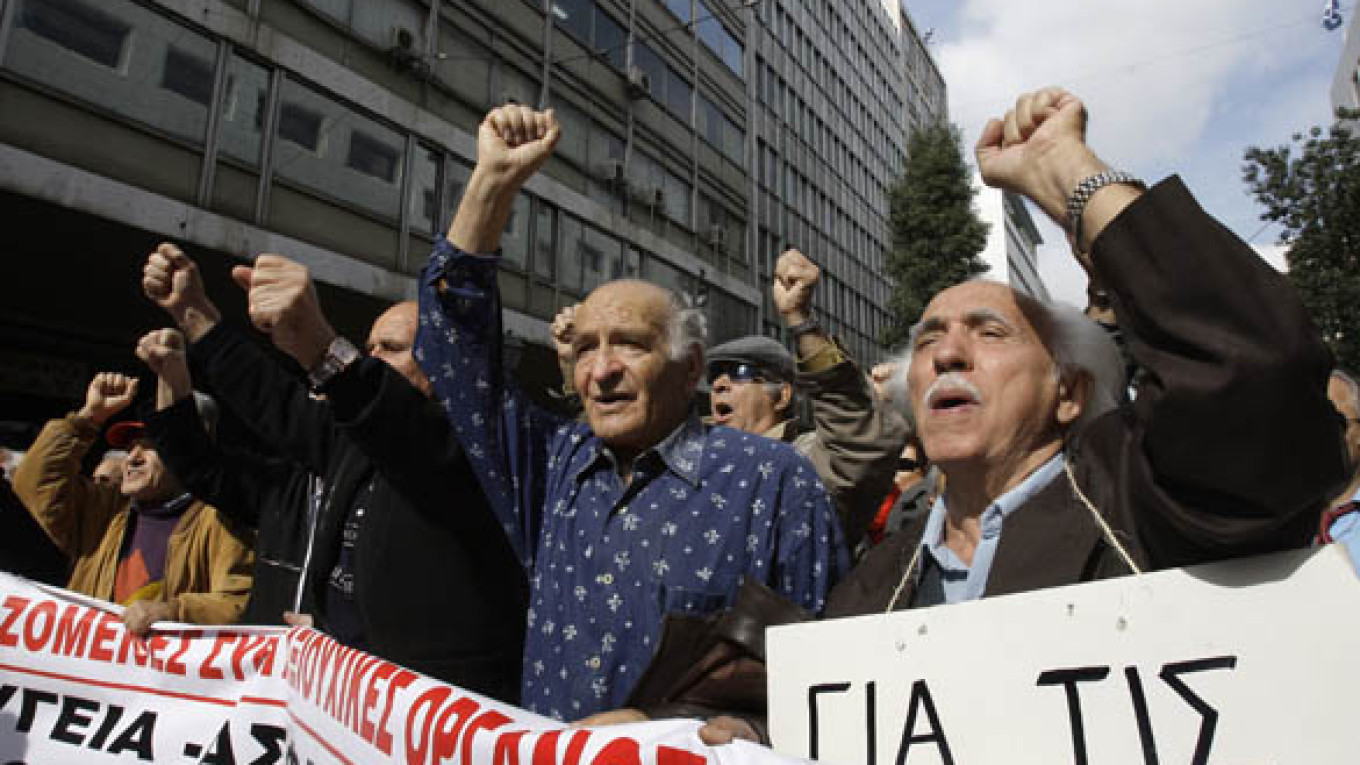As expected, the economic crisis has led to social unrest. Most workers have seen little result from the victory over the crisis that government officials and observers announced as far back as the middle of last year. In place of increases to production, employment and the standard of living, Russians have seen improvements to a few statistics and greater corporate profits. Meanwhile, the money that the government so generously doled out to the oligarchs as anti-crisis aid has almost run dry. Prime Minister Vladimir Putin does little more than make a show of scolding businesspeople and exhorting them to do something — anything — for society, reminding them of old promises and the public funds that the authorities continue giving their businesses to keep them afloat.
The result of these efforts is clear from the start. Businesspeople are not motivated by emotions but by business interests. No persuasion, calls to conscience or reminders of old friendship will change anything as long as a businessperson’s economic interests are not affected. And to bring about a change influencing those interests would require a radical societal transformation that both the authorities and the business community are trying hard to avoid. In other words, the government will get nowhere with businesses because both sides share the same goals and ideology. And businesses will give nothing to the authorities because they have already received everything they needed at no cost.
The authorities’ helplessness in the face of mounting social problems can be felt around the world. Liberal economists are united in claiming that the only means of preventing another downturn is to give even more money to corporations, write off their debts and buy up their unsold products. The “invisible hand of the marketplace” stubbornly refuses to operate, with no renewal of consumer demand in sight. The battle against the crisis remains the exclusive task of governments. But as budgetary resources dwindle, governments will have no choice but to fill the growing gaps at the public’s expense.
The situation in Russia is far from being the worst. The financial collapse in Greece and Spain has compelled the authorities to adopt unpopular measures — measures that Moscow officials refuse to even discuss. We will soon see the same thing happen in Ukraine and the Baltic states. And with Germany’s leaders fully committed to saving the euro at any cost, German taxpayers will end up having to foot the bill for it. Because the people of Western European countries are unaccustomed to long-suffering and are not intimidated by their government ministers and lawmakers, they are starting to get a little rowdy — staging strikes, seizing top executives as hostages, rallying in the streets and breaking shop windows. But that wave of social protest will not change anything, and it will not force leaders to change course. Governments react to these events as if they were natural disasters, thinking, “When the storm dies down, we’ll all be able to return to life as normal. After all, workers can’t strike forever.” Despite all of Russia’s problems with democracy, in that sense this country differs little from other European countries.
The ruling elite of Western Europe will survive the current wave of strikes and will keep their current economic policies intact. The problem, however, is not with the strikes or acts of resistance but with the policy itself because it is unable to resolve new problems. And that means any victory over the crisis will be nothing but the prelude to a new round of problems.
Boris Kagarlitsky is director of the Institute of Globalization Studies.
A Message from The Moscow Times:
Dear readers,
We are facing unprecedented challenges. Russia's Prosecutor General's Office has designated The Moscow Times as an "undesirable" organization, criminalizing our work and putting our staff at risk of prosecution. This follows our earlier unjust labeling as a "foreign agent."
These actions are direct attempts to silence independent journalism in Russia. The authorities claim our work "discredits the decisions of the Russian leadership." We see things differently: we strive to provide accurate, unbiased reporting on Russia.
We, the journalists of The Moscow Times, refuse to be silenced. But to continue our work, we need your help.
Your support, no matter how small, makes a world of difference. If you can, please support us monthly starting from just $2. It's quick to set up, and every contribution makes a significant impact.
By supporting The Moscow Times, you're defending open, independent journalism in the face of repression. Thank you for standing with us.
Remind me later.


